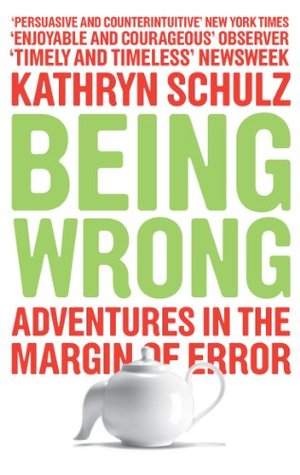More on this book
Community
Kindle Notes & Highlights
Read between
August 5 - August 7, 2018
Still, on the whole, our indiscriminate enjoyment of being right is matched by an almost equally indiscriminate feeling that we are right.
A whole lot of us go through life assuming that we are basically right, basically all the time, about basically everything: about our political and intellectual convictions, our religious and moral beliefs, our assessment of other people, our memories, our grasp of facts. As absurd as it sounds when we stop to think about it, our steady state seems to be one of unconsciously assuming that we are very close to omniscient.
water marks of human endeavor and the source
the experience of being right is imperative for our survival, gratifying for our ego,
and, overall, one of life’s cheapest and keenest satisfactions.
Far from being a sign of intellectual inferiority, the capacity to err is crucial to human cognition. Far from being a moral flaw, it is inextricable from some of our most humane and honorable qualities: empathy, optimism, imagination, conviction, and courage. And far from being a mark of indifference or intolerance, wrongness is a vital part of how we learn and change. Thanks to error, we can revise our understanding of ourselves and amend our ideas about the world.
wrongness is a window into normal human nature—into
however disorienting, difficult, or humbling our mistakes might be, it is ultimately wrongness, not rightness, that can teach us who we are.
the capacity to get things wrong is not only part of being alive, but in some sense proof of it.
we positively excel at acknowledging other people’s errors. In fact, if it is sweet to be right, then—let’s not deny it—it is downright savory to point out that someone else is wrong.
to be wrong is to believe something is true when it is false—or, conversely, to believe it is false when it is true.
Anton’s Syndrome,
Believing that this time we will succeed where in the past we have failed, or failed to try; believing the best of ourselves even when we are intimately familiar with the worst and the merely average; believing that everything in us that is well-intentioned will triumph over all that is lazy or fickle or indifferent or unkind: this is wrongness as optimism—an endlessly renewable, overextended faith in our own potential. Wrongness as optimism is why my friend thought he would read one of the world’s longest and hardest works of literature during a four-week holiday, and why my neighbor swears
...more


